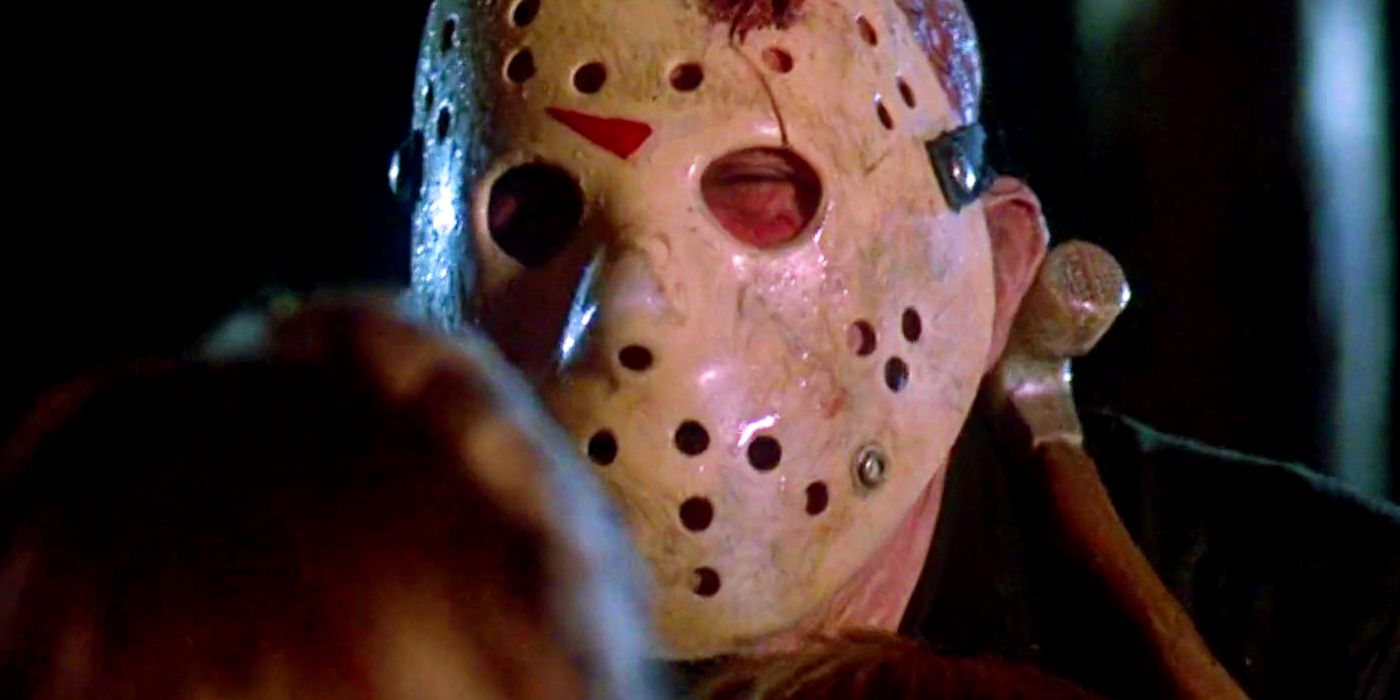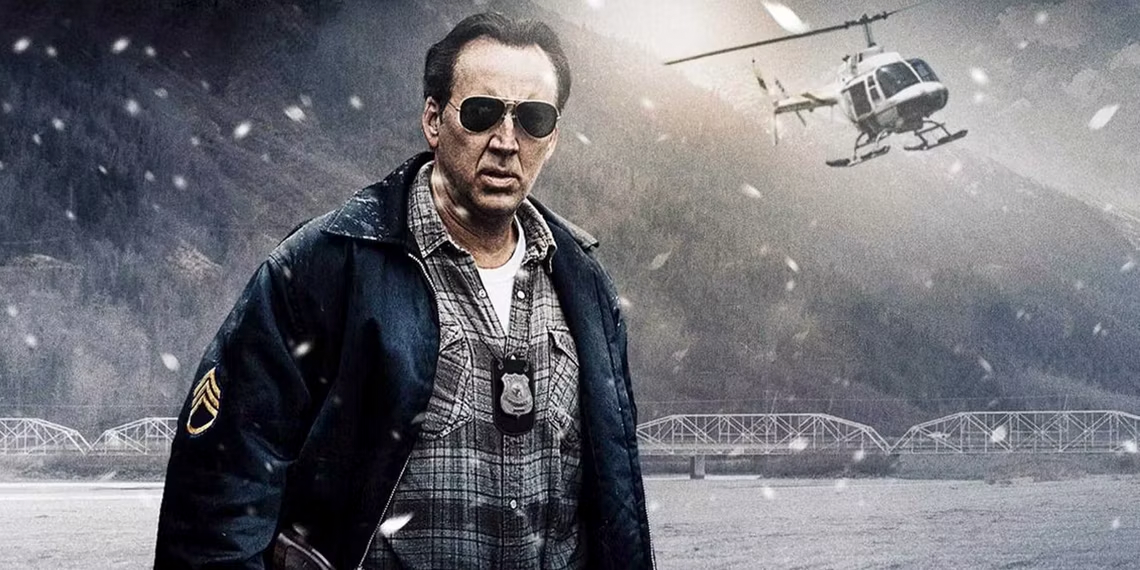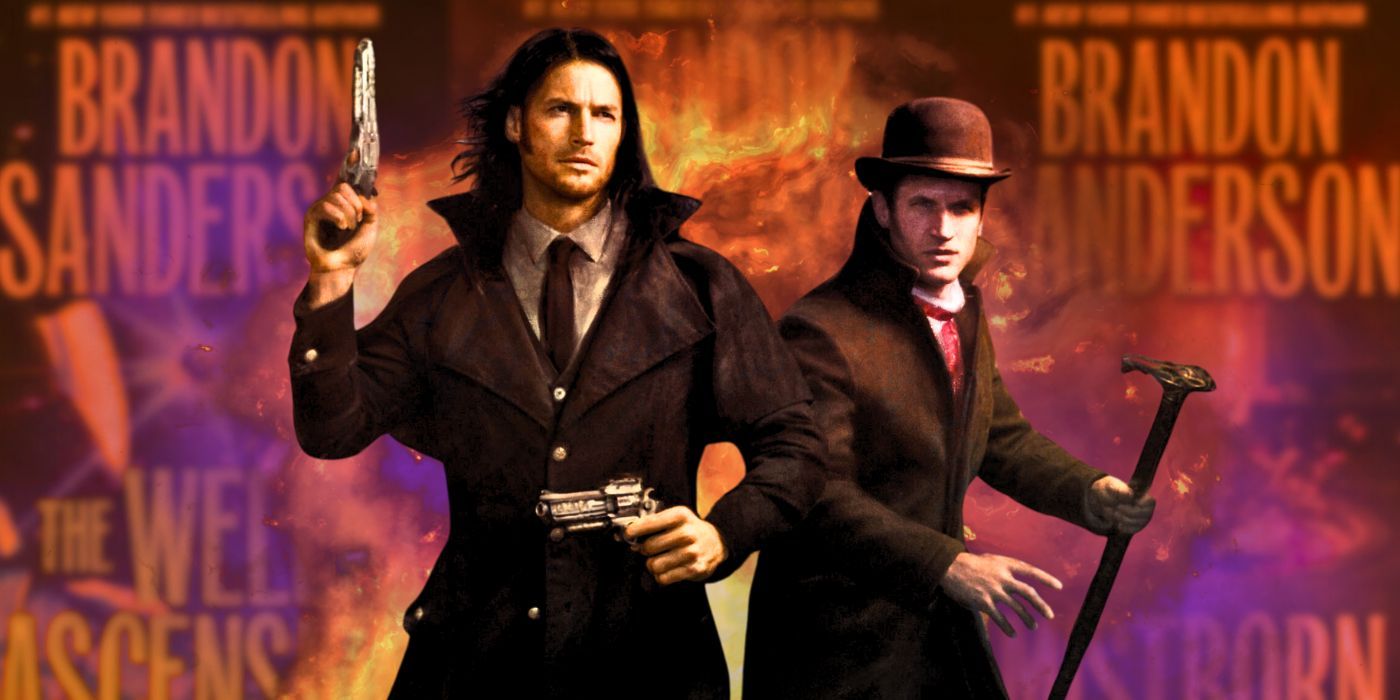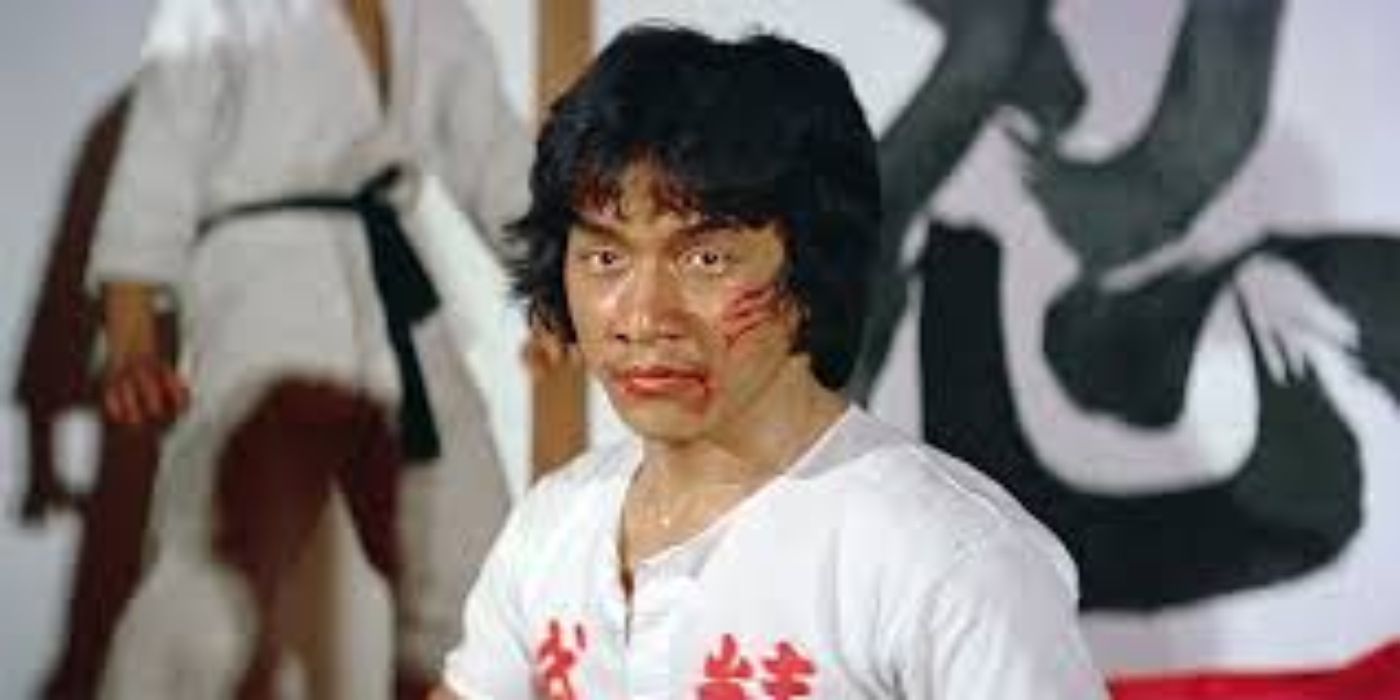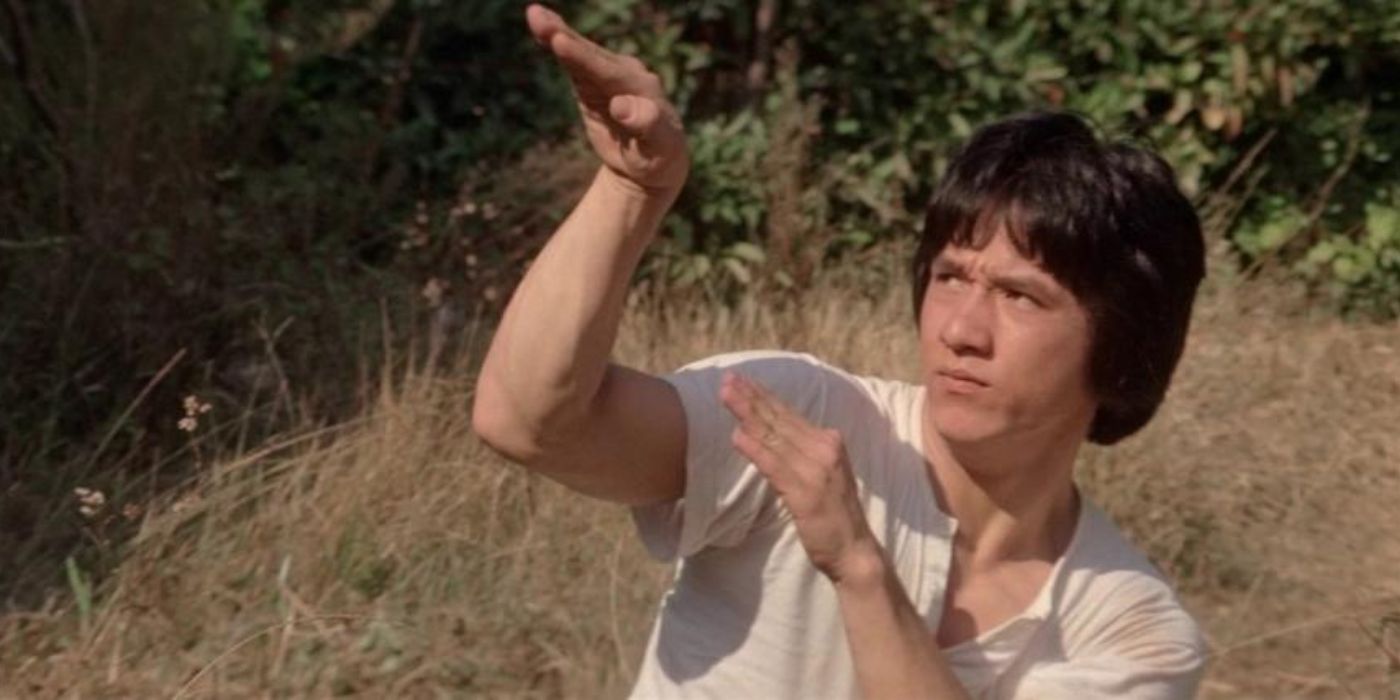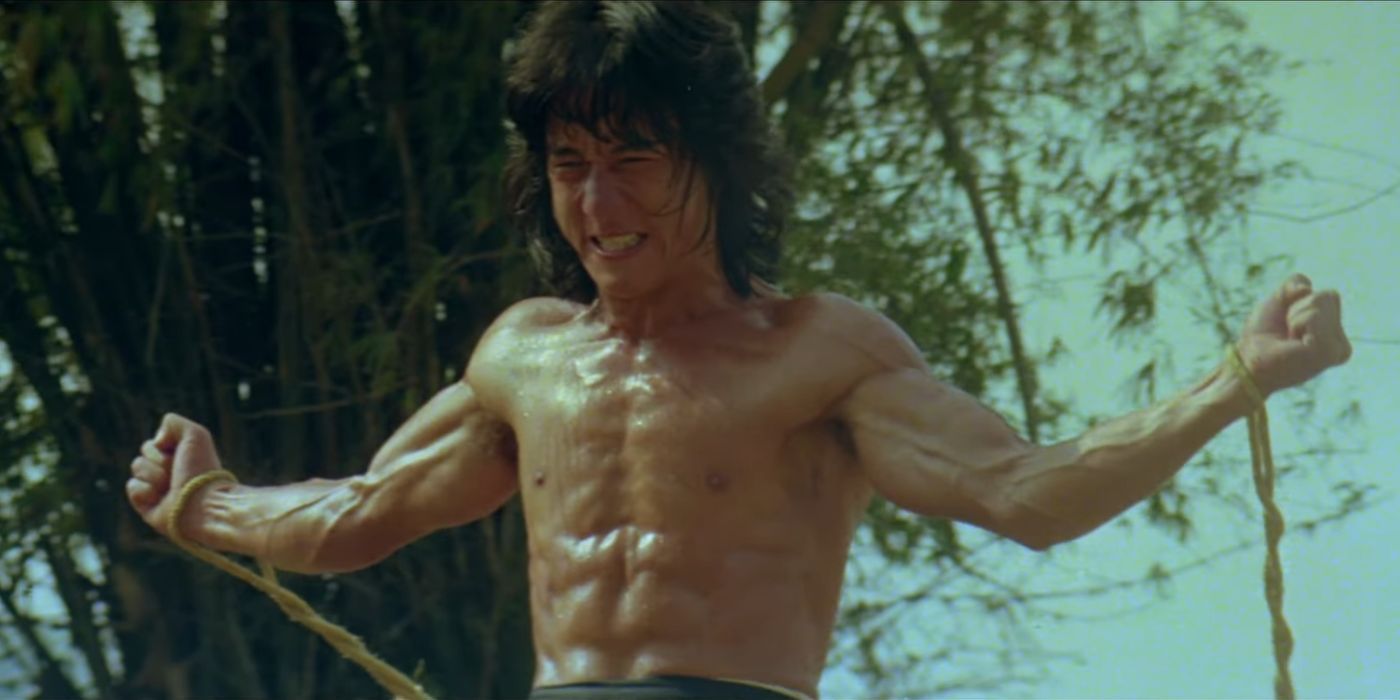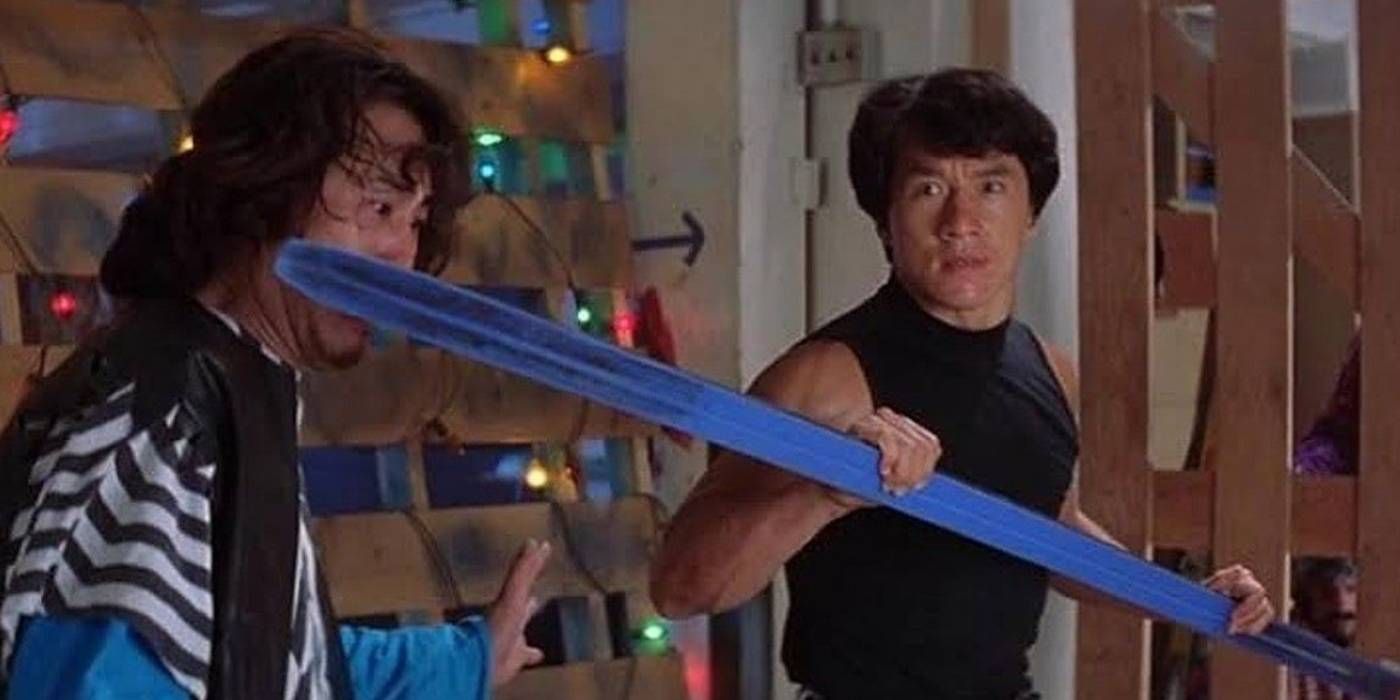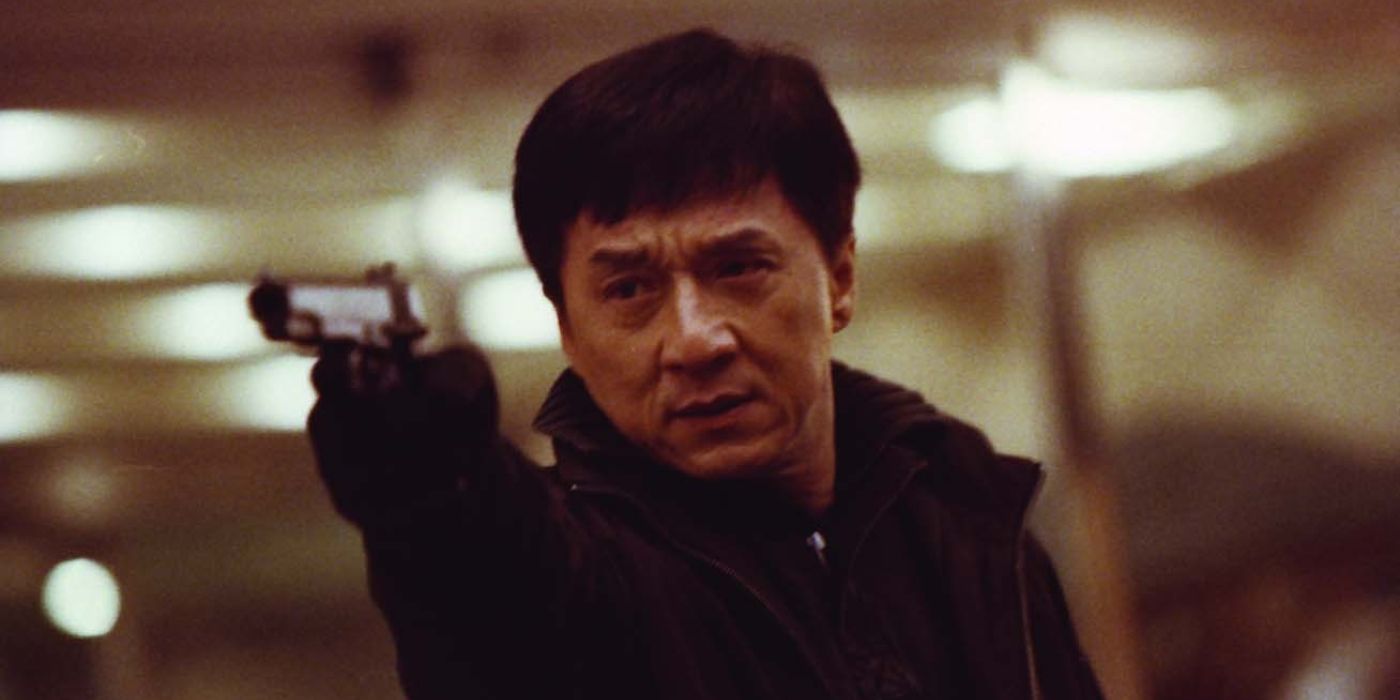Summary
- "New Fist of Fury" launched Jackie Chan's career as a leading man, showcasing his martial arts skills and professional relationship with director Lo Wei.
- "Snake in the Eagle's Shadow" established Chan's unique comedic fighting style, allowing him to relax in his performance and showcase his talent.
- "Shinjuku Incident" marked a departure from Chan's usual roles, showcasing his dramatic range and versatility as an actor beyond physical comedy.
Jackie Chan is a brilliantly talented actor, but only a few of his movies can be considered defining moments in his career. The Hong Kong national began performing as a child, appearing in small roles since the age of 5, and has since spent an incredible sixty-two years developing and honing his acting skills. While many will know Jackie Chan for his martial arts skills, he's proved his versatility as an actor and has a wide range of abilities as a performer.
In his long career, Chan has starred in over 150 films, making him one of the most influential action movie stars of all time. However, he's also shown that he's more than just an actor by actively involving himself in political debates, proving himself a successful entrepreneur, and being a trained opera singer. While he's had a brilliantly decorated career so far, there are eight key Jackie Chan movies that stand out as staples in his time as an actor.
|
Movie Title |
Release Date |
|---|---|
|
New Fist Of Fury |
1976 |
|
Snake In The Eagle's Shadow |
1978 |
|
Drunken Master |
1978 |
|
The Fearless Hyena |
1979 |
|
Rumble In The Bronx |
1995 |
|
Shanghai Noon |
2000 |
|
Shinjuku Incident |
2009 |
|
The Karate Kid |
2010 |
8 New Fist Of Fury (1976)
Jackie Chan's First Starring Role
New Fist Of Fury gave Jackie Chan his first starring role in a widely released film as Ah Lung. New Fist Of Fury served as a sequel to the 1972 film Fist of Fury, which intended to model Chan after Bruce Lee, another one of the greatest martial arts stars to appear on-screen. Although the film was considered to be a failure, it still gave Chan the opportunity to show off his martial arts skills, as well as sparking the professional relationship between him and director Lo Wei, who he'd go on to work with on several other titles.
7 Snake In The Eagle's Shadow (1978)
The Establishment Of Chan's Acting Style
Chan's official breakthrough in cinema came in the 1978 Snake in the Eagle's Shadow, which also saw the introduction of his famous slapstick approach to comedy. Snake in the Eagle's Shadow redefined the structure of martial arts movies, especially as Chan's role as Chien Fu introduced the world to a character who wasn't afraid to be silly while still maintaining the seriousness and self-control needed to learn kung fu. This title saw Chan truly relax in his performance, implementing parts of his own personality into Chien.
Snake in the Eagle's Shadow saw some of Chan's best stunts, too, with director Yuen Woo-ping giving the actor full control over how he did them. While this sounds like just a simple, polite offer from Woo-ping, it also proves just how talented Chan is when it comes to martial arts, as the director trusted him to know what he was doing. Although he did get injured during the shoot, losing a tooth and getting accidentally cut by a sword, Chan still showed off some of his best work in this film.
6 Drunken Master (1978)
Jackie Chan's Role Launched Him Into Stardom
Drunken Master (1978)
In the same year as Snake in the Eagle's Shadow, Chan worked with Woo-ping once again on Drunken Master, considered to be the title that made him a star. As one of the most influential kung fu films ever, Drunken Master's use of comedy and sport provided some hilarious moments for Chan's character, Wong, who attempts to learn the martial art from his intoxicated teacher. Chan was particularly praised for his electrifying fight scenes, which were as funny as they were tense, causing a surge of popularity in the blend of humor and martial arts in cinema.
5 The Fearless Hyena (1979)
Chan's Directorial Debut
The Fearless Hyena marked Jackie Chan's directorial debut, having also written the script for the 1979 film. The Fearless Hyena included one of Jackie Chan's most iconic scenes – the famous chopstick duel between Lung (Chan) and Pang-fei (James Tien), which would go on to be referenced in several other films, including Kung Fu Panda. The film was considered a box office success, spawning the sequels Fearless Hyena Part II and Project A, cementing Chan's status as a director and writer, pulling him out of the box of being just an actor.
4 Rumble In The Bronx (1995)
Breakthrough In The United States
Rumble In the Bronx
Rumble In The Bronx resulted in Chan's breakthrough in the United States, introducing himself to millions of new audience members in the Western world. Rumble In The Bronx's fast-paced action scenes and entertaining interactions between Ma Hon Keung (Chan) and the villainous street gang resulted in a cult following, which, while not impossible, was a rare occurrence for a film initially released in Hong Kong. The film got to see Chan show off his fighting skills in more diverse ways, rather than just his body, with scenes that saw him using unconventional weapons, including a pinball machine and his jacket.
3 Shanghai Noon (2000)
Jackie Chan's Dip Into The Western Genre
Shanghai Noon
While still remaining true to his martial arts heritage, Shanghai Noon saw Chan delve into a new genre for him, starring opposite Owen Wilson in the Western action comedy movie. Although the film still included martial arts sequences, Shanghai Noon had more of a focus on the buddy cop movie trope through the hilarious frenemy relationship between Chon (Chan) and Roy (Wilson). Considering that at this point in his career, Chan was a big deal worldwide and had solidified himself as a Hollywood name, Shanghai Noon was a perfect time for the actor to start taking risks with his roles.
2 Shinjuku Incident (2009)
Breaking Away From Typecasting
The Shinjuku Incident
- Director
- Tung-Shing Yee
- Release Date
- March 22, 2009
- Cast
- Tôru Minegishi, Masaya Katô, Jinglei Xu, Naoto Takenaka, Jackie Chan, Daniel Wu
- Runtime
- 120 minutes
While not every Jackie Chan movie involves the actor in martial arts sequences, his performance as Steelhead in Shinjuku Incident stands out. Chan's purely dramatic portrayal of the immigrant mechanic was nothing short of intense, which allowed him to show his range as an actor, stepping away from his usual reliance on physical comedy and the action-hero archetype he'd built up by taking on a more complex character whose morals were blurred. This film is one of the best examples of Jackie Chan's versatility, with specific praise given to his character's ending, which was heartwrenching and gritty.


